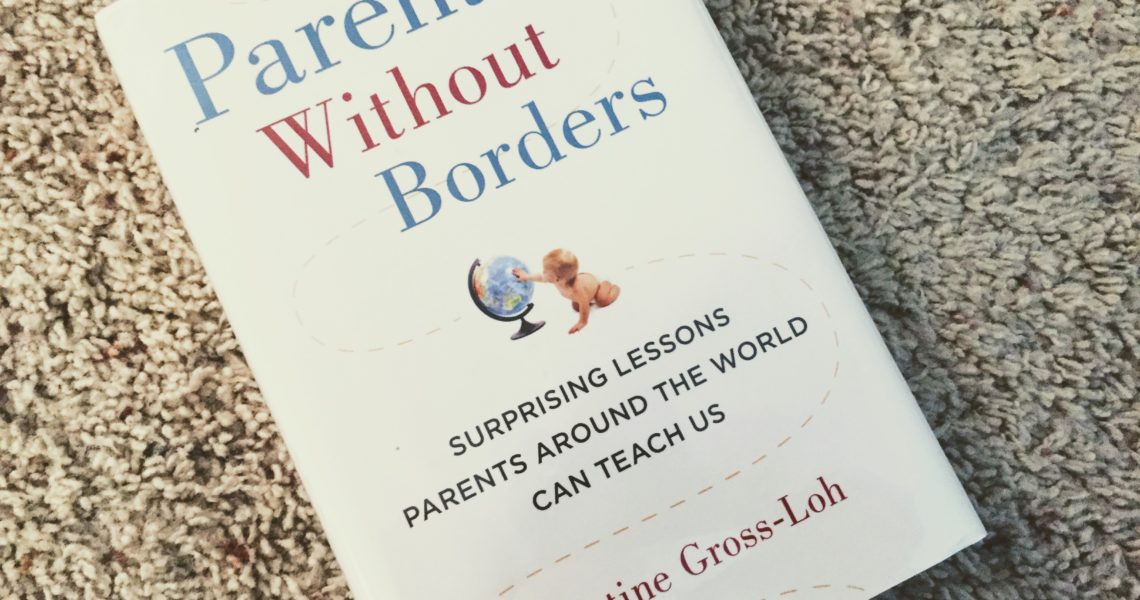This book is outside of my usual reading material, but a very good look at the impact of rising our children and how various people across the world do it. Parenting Without Borders by Christine Gross-Loh is divided into four parts. I will go over much of the book briefly, so if you want the stats and details, I would suggest reading the book.
Part one is about the care and feeding of children. It begins with sleep time. It was interesting to learn that in most cultures the baby sleeps in the bed with parents until the child decides they are big enough to sleep in their own bed. As they get older, sometimes they will sleep with siblings. This is, however, the exact opposite of how we did sleep time with our children. Gross-Loh explains:
Parents in cultures around the world believe that what happens during nighttime hours shapes children’s behavior during waking hours, their confidence levels, and their sense of self. [p 23]
She goes on to say that early shared sleep fosters later independence. The research went on to say that those children who were co-sleeping from infancy grew to be more self-reliant and confident. The idea is that assurance was given to them by the parental sleep that helped foster confidence and trust.
One other issue discussed in this part was the issue of food. Other culture introduces real foods earlier into the lives of their children. Also, children were expected to try all new foods and try a little bit of everything. Meals were a family affair and everyone was involved in the preparation process. Young children were taught from the very begin to prepare and eventually cook meals for the entire family.
I go in depth into chapter four which involved self-esteem and building resilience. I found a lot of personal reflection in this chapter. Feel free to check it out.
The book goes further into fostering self-control and the value of unstructured play and how it build community, trust, and children learning their own limits and determine their own risk level.
Gross-Loh discusses the Asian learning culture and the American style. She eventually lands that their needs to be a balance (or blending) of both. She explains her experience with and joy for the Finnish education system and how it fosters learning and inspires it students to grow.
She ends the book tacking more character issues like kindness and responsibility. She explains that children who care are not sheltered. They learn to look people in the eye and connect to them. The principle is that if a child feels a part of the family community and finds value there, they will grow in their understanding that the community at large depends on them and their actions affect everyone around them.
This is also where chores and teaching life skills comes into play. We are all a part of a community and that family needs everyone contributing and each person’s effort gives value to another and the completion of such responsibilities builds kindness toward fellow humans.
